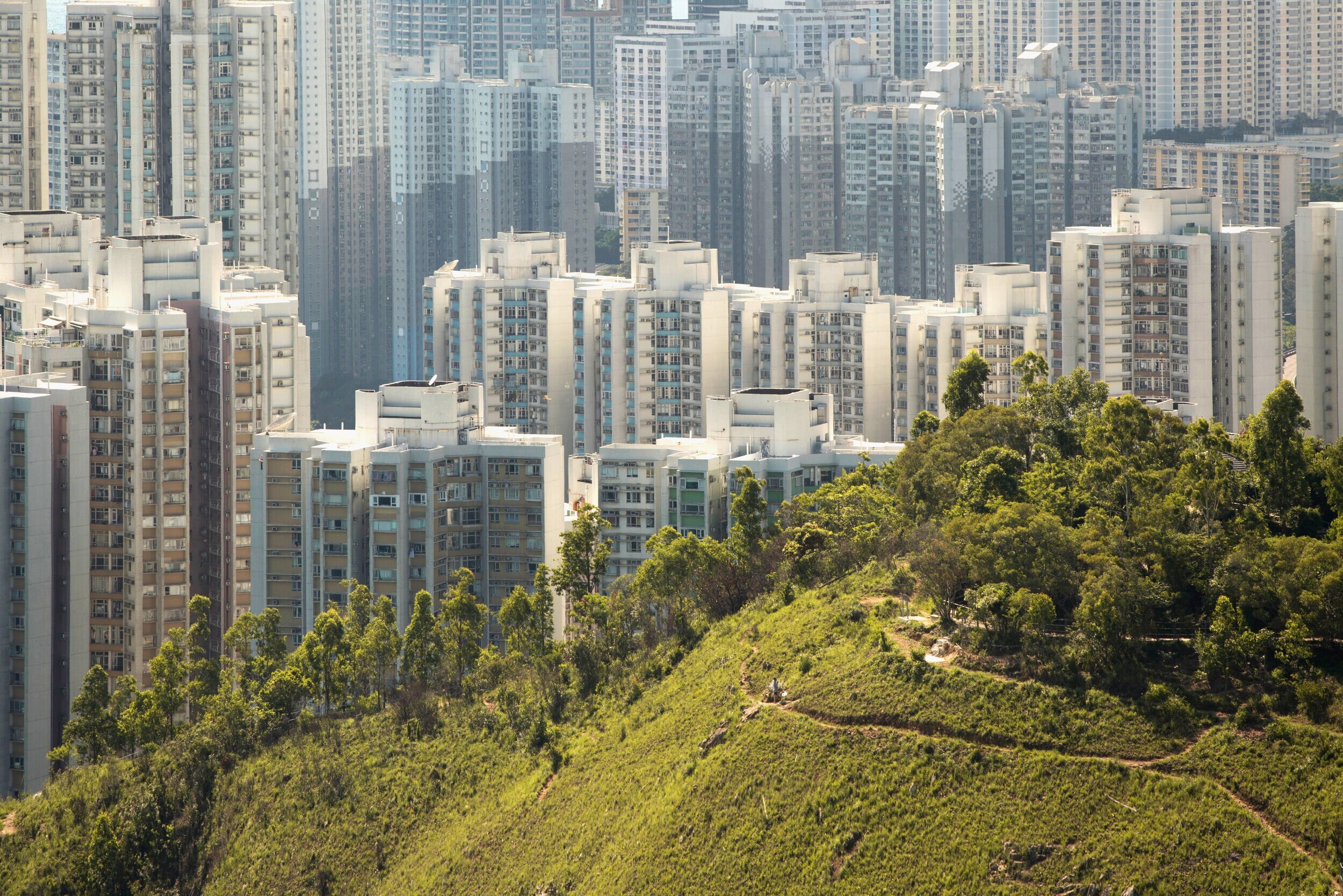Eden of the Orient - a photo essay
Belgian photographer Kris Provoost has released a photo essay documenting the juxtaposition of Hong Kong’s “hyper-dense” high rise housing and the natural landscapes it sits in.
Entitled Eden of the Orient the project focuses on the nine New Towns built by the Government to accommodate Hong Kong’s booming population
One of the images from the “Eden of the Orient” photo essay.
“As about 50% of Hong Kong’s seven and a half million residents live in these new towns, they form the bulk of how most Hong Kong people are forced to live,” Provoost says.
“Hong Kong has a unique set of characteristics, a grouping of different islands with vast country parks covering 75% of the land area. This leaves very little land to build housing. The results are often staggering, hyperdense areas are set against abundant green.”
The essay documents the juxtaposition of Hong Kong’s “hyper-dense” high rise housing and the natural landscapes it sits in.
Provoost, who lives in Hong Kong, says the idea for the series was prompted by countries around the world going into lockdown because of COVID-19.
He wanted to look at how locals lived, and whether in fact the region was becoming unliveable. And with the current average-sized apartment in Hong Kong being just 45 sq m he was concerned for the mental wellbeing of those in the territory should it also be forced into a lockdown.
Belgian photographer Kris Provoost lives in Hong Kong.
"Locking up millions of Hong Kong people in their tiny 'shoeboxes' would be a disaster that would take years to mentally heal from,” he told Dezeen.
Of the territory’s 1,100 sq kilometres of land area, just seven percent is for residential use. And while the Government’s original new towns were built on existing land, newer one have increasingly been built on reclaimed land due to the hilly nature of the landscape, Provoost says.
Kris Provoost wanted to look at how locals lived, and if the region was becoming unliveable.
“While much of Hong Kong has seen land reclamation to extend shorelines and decrease the iconic Victoria Harbour, one can ask if it is necessary to build on water.” he wrote in his photo essay.
The project focuses on the nine New Towns built by the Government to accommodate Hong Kong’s booming population.
“ With a disproportionate land use between residential land and the country park, you could wonder if it would perhaps be okay to encroach slightly on these boundaries and find a more cost-efficient solution for the land shortage. After-all Hong Kong isn't short of land, it is short of land dedicated for housing.”
You can see more of Kris Provoost’s work here.




